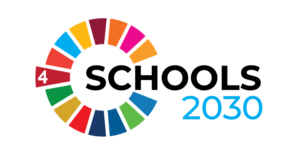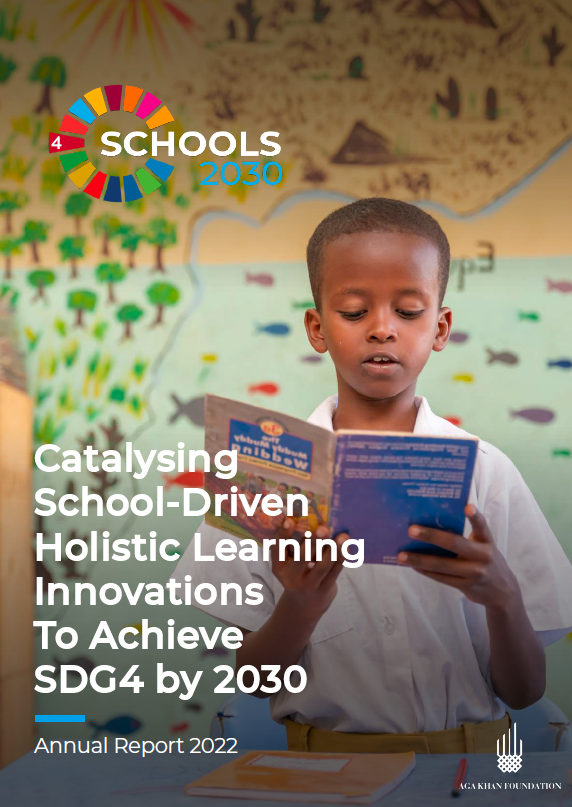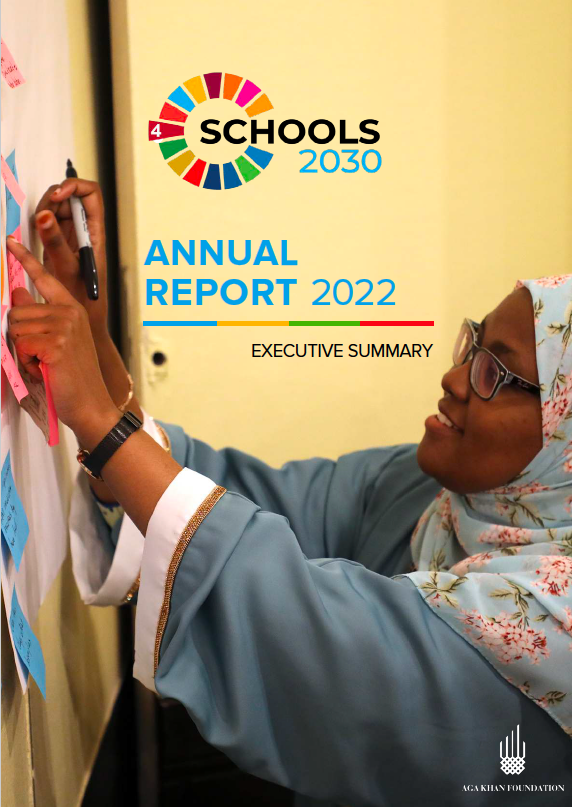Schools2030, AKF’s flagship education programme, is thrilled to release its second Annual Report, providing details of its progress across ten countries and reflecting on all that has been learned together.
Schools2030 is a ten-year participatory education programme based in 1,000 government schools across ten countries. Using the principles of human-centred design (HCD) and focusing on the key transition years of ages 5, 10 and 15 years old, Schools2030 supports teachers and students to design and implement education innovations. These low-cost and scaleable solutions are informing and transforming education systems to improve learning for the most marginalised learners worldwide. The programme was launched in 2020, and has seen extraordinary progress since then – last year in particular, “was a year of consolidation and growth for Schools2030,” according to Bronwen Magrath, Schools2030 Global Programme Manager.
Last year, Schools2030 made great strides across each stream of its Three-Step Model – Assess, Innovate and Showcase. It finalised and rolled out holistic, contextualised assessment tools across ten programme countries, providing educators in the network of 1,000 schools unprecedented levels of access to the learning outcomes of their students across academic and socio-emotional learning domains. The programme facilitated over 5000 educators to co-develop, through Human-Centred Design (HCD), education innovations targeting contextually relevant national learning domains. Finally, it supported educators to showcase these innovations at local, national and global forums, including at the inaugural Schools2030 Global Forum, which allowed educators to directly connect with policymakers, to share replicable models for classroom-level learning improvement and to inspire new thinking.
Schools2030 also laid a strong foundation for systems-level change through strategic partnerships with Ministries of Education, teacher training institutes and Schools2030 National Advisory Committees. Cutting across all this work, Schools2030 continues to facilitate independent research to expand our understanding of holistic education, through participatory research and evidence co-creation.
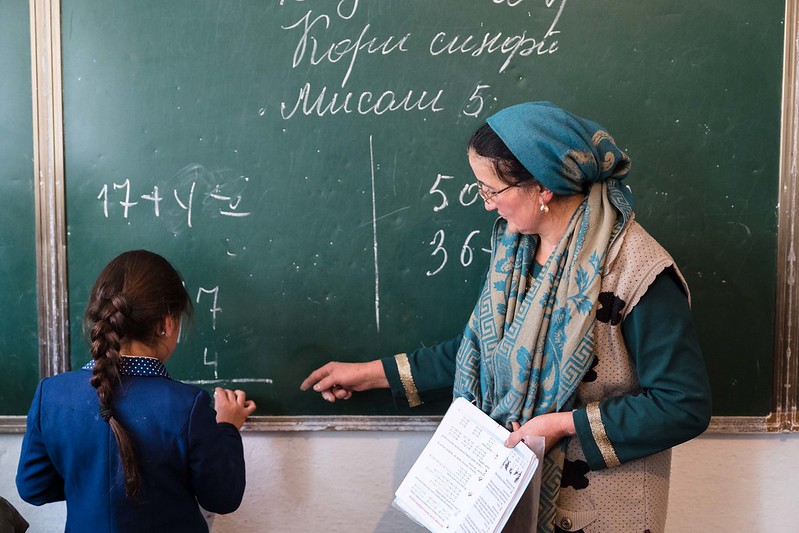
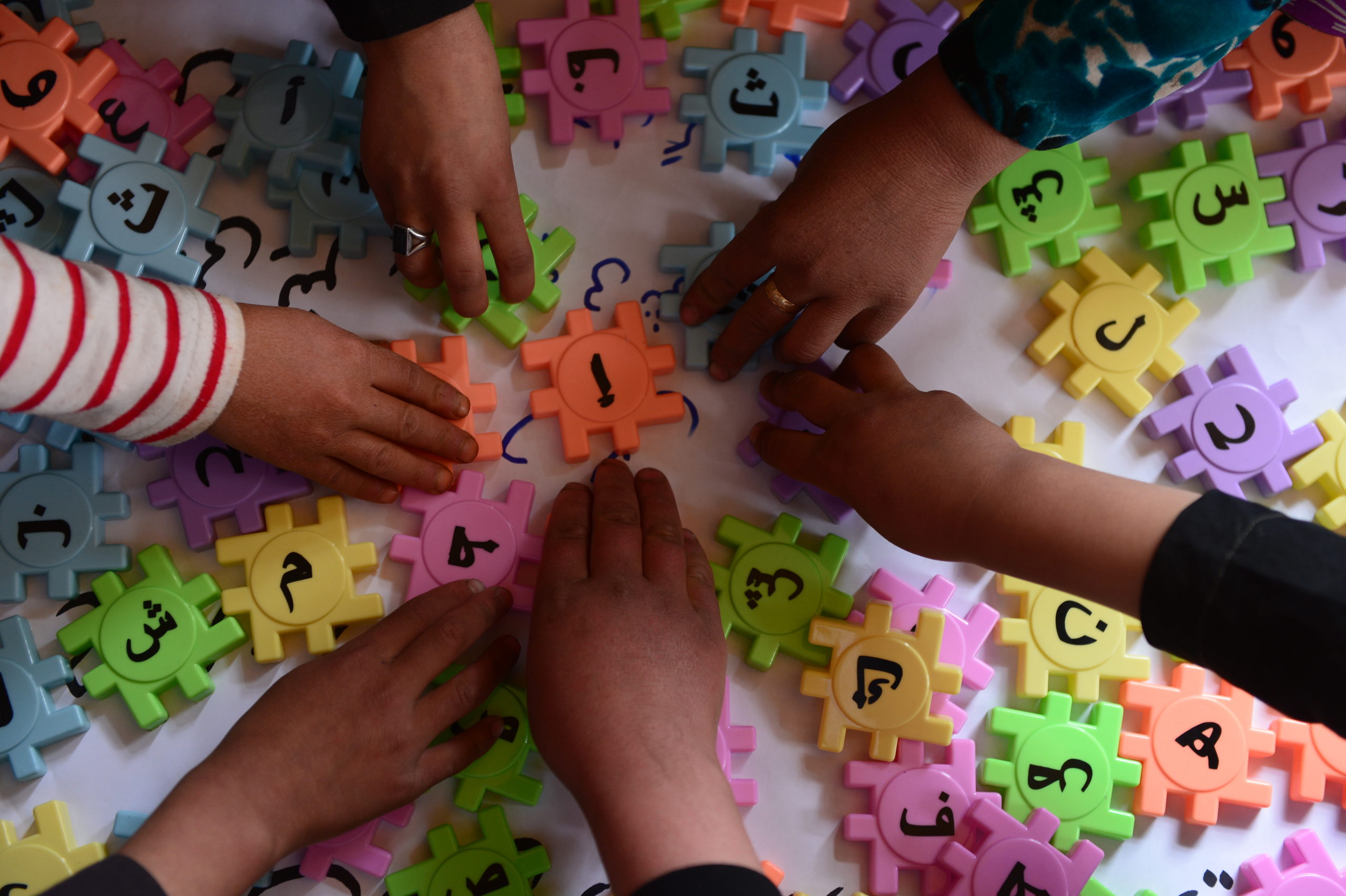
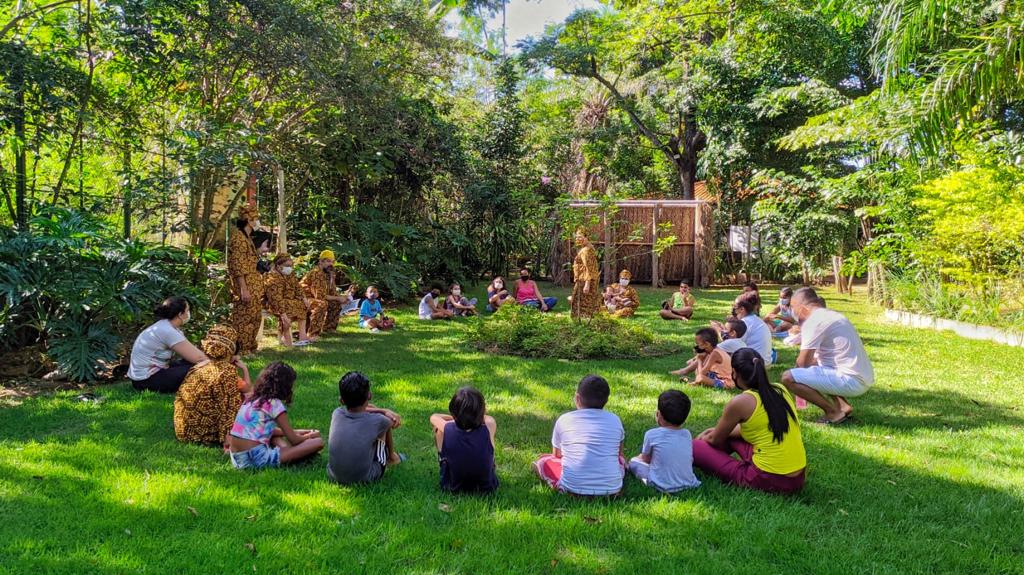
Looking ahead, the experience of developing holistic learning assessments throughout 2022 has reinforced the pioneering role Schools2030 teams and partners are taking globally on measuring non-academic skills and on supporting teachers’ assessment capabilities. Educators are requesting additional time, training and support on holistic skill assessment, including support with continuous and formative assessment to improve the quality of learning and the teaching environment.
HCD is the cornerstone of the Schools2030 programme, and as it develops, so too must the HCD tools and resources. When Schools2030 launched, HCD was so new; it represented a different way of thinking about teaching, learning and education improvement. Two years on, Schools2030 is able to reflect on how its HCD toolkit can be enhanced and revised so it aligns better with assessment tools and other offerings.
The programme has also learned that there is a need for more differentiation in how design thinking is supported at school-level and in different contexts. Through consultation with school-level stakeholders, the team has started developing a suite of shorter HCD modules, based on the full Schools2030 HCD toolkit but offering a slimmer set of activities and resources. These will allow educators to begin the design process at different starting points to accommodate project teams who come to the process with an idea to prototype or a problem to explore.
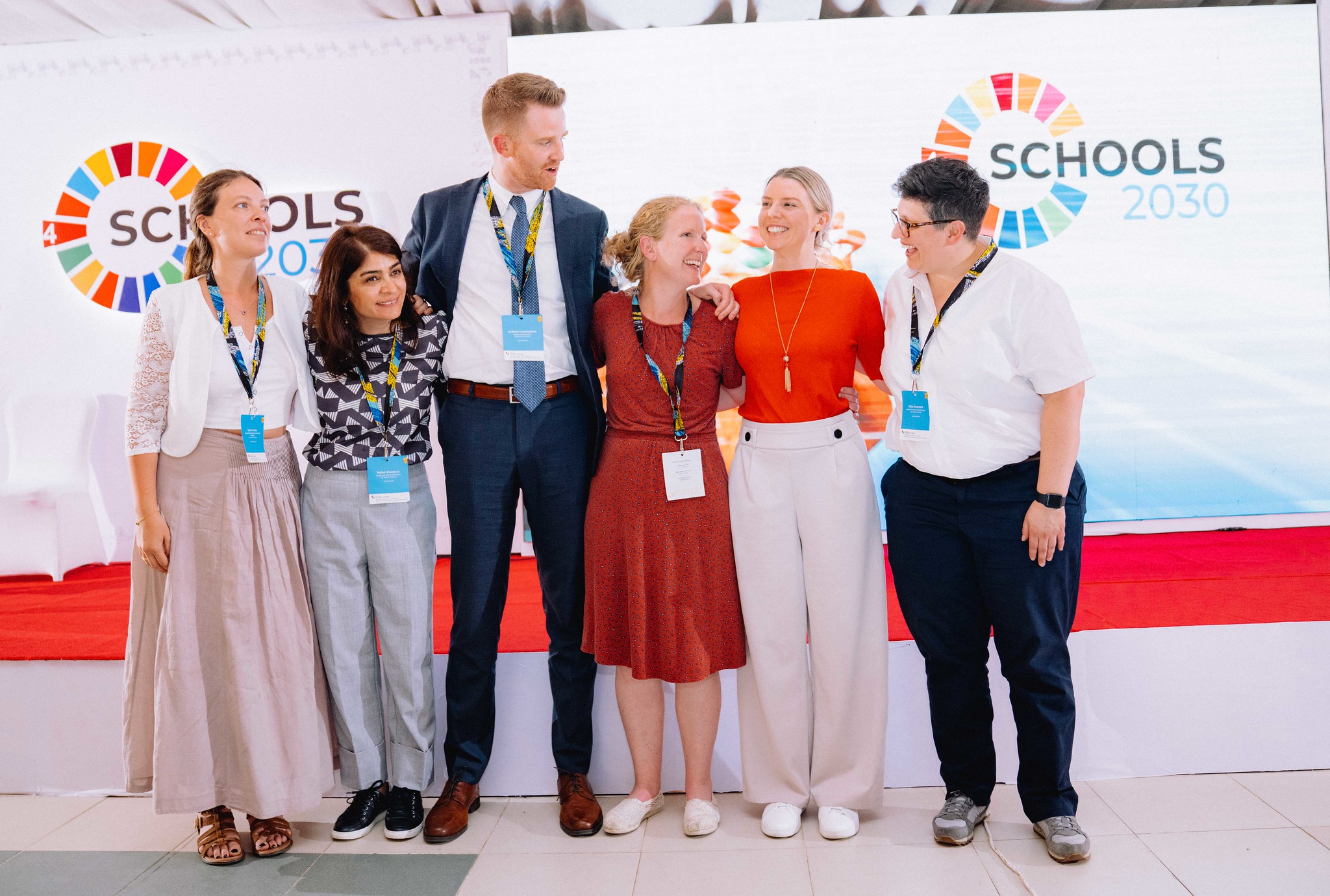
One of the biggest milestones for the programme in 2022 was its inaugural Schools2030 Global Forum. Hosted in Dar es Salaam, the event brought together a diverse group of delegates from all over the world. Participants at the forum praised the active role played by teachers and school leaders across the three-day event, which saw educators presenting in high–level plenaries and panels as well as joining workshops and discussion groups. Voices of learners from across the ten programme countries were brought to the global stage through pre-recorded videos. In 2023, Schools2030 aims to do much more to ensure the active engagement of young people across all aspects of the Global Forum, which will be held in Porto this June.
AKF is looking forward to supporting the upcoming Global Forum, as well as continuing to support Schools2030’s mission to improve holistic learning worldwide.
“On behalf of the Schools2030 Global Secretariat, I would like to thank our network of schools, staff, partners, donors, supporters and friends for another great year. Together we are reimagining the future of learning and the achievement of quality, equitable education for all.”
Bronwen Magrath, Schools2030 Global Programme Manager
